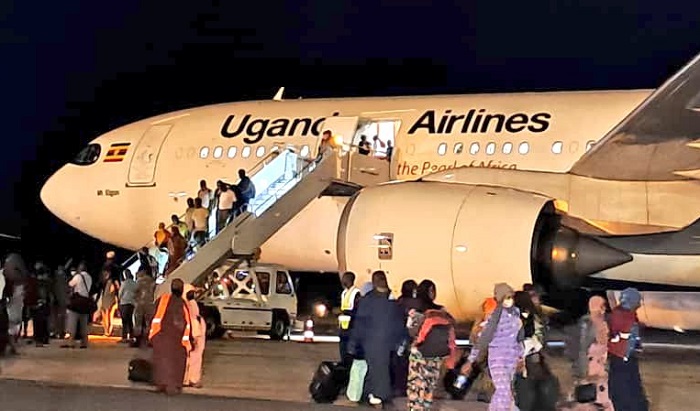KAMPALA, UGANDA: A total of 211 Ugandans who were living & working in the Republic of Sudan arrived at Entebbe Airport on Thursday morning following a successful evacuation from the conflict-hit country.
The evacuees in the company of Ambassador Joseph Ocwet, the Director General of ESO composed of diplomats, students, and business expatriates reached Entebbe aboard a Uganda Airlines plane at around 2 am this morning.
On arrival, the returnees were received by General Muhoozi Kainerugaba, Senior Presidential Advisor on Operations the designated supervisor of the special evacuation operation.
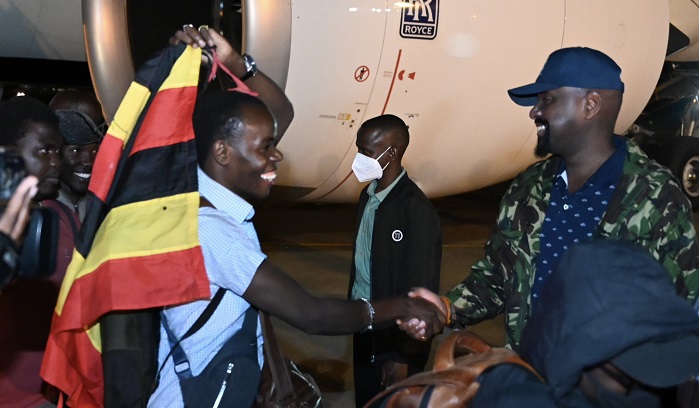
How the Ugandan Nationals were evacuated
Government had previously disclosed that 300 Ugandans had been trapped in Sudan, following the civil war, however, after the direct involvement of President Museveni, preparations were made to evacuate the stranded Ugandans, starting with those in Khartoum where the fighting had intensified.
According to sources, the entire evacuation initiative was spearheaded by President Museveni with support from the Sudanese government and the Ugandan embassy staff in Khartoum.
“The President showed considerable care about the welfare and safety of Ugandans. He has been seeking daily updates and making assurances about the need to ensure the safety of Ugandan citizens,” Dr Rashid Yahya Ssemuddu, Uganda’s ambassador to Sudan said on Tuesday.
President Museveni directed the relevant authorities to start the evacuation process from the greater conflict area of Khartoum.
He started by asking ESO chief Ocwet to work with Kampala’s embassy in Khartoum to mobilise Ugandans and later evacuate them “safely”.
“So, Ambassador Ocwet, the director general ESO together with Brig Gen Frederick Karara (defence attachè) began to mobilise Ugandans in Khartoum mainly through telephone and WhatsApp groups. Good enough, the majority of Ugandans in Khartoum have leadership,” Mr Ofwono Opondo, the government spokesperson, told journalists in Kampala on Tuesday.
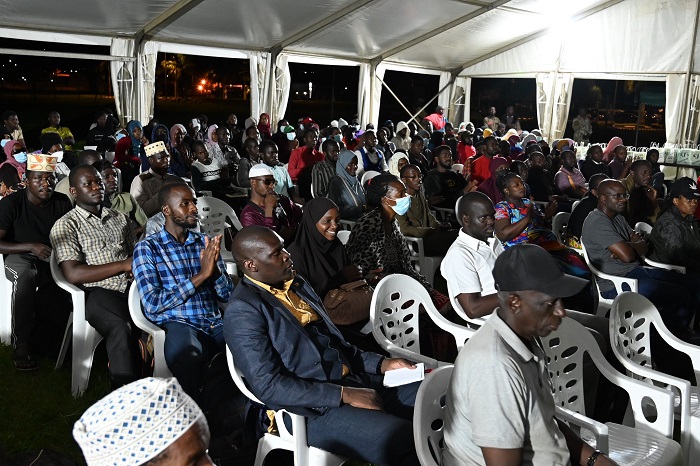
All trapped Ugandans, according to Mr Opondo were then mobilised to assemble at the University of Africa in Khartoum, where majority of the students are while the working group were brought to the embassy.
Ambassador Ocwet and Brig Karara then organised buses to transport Ugandans towards the border of Ethiopia, in the east.
On Sunday evening, four hired buses filled with 208 rescued persons set off from the embassy’s compound located at the Garden City, in Khartoum for a 761km journey to Ethiopia.
Prior to this journey, which lasted 12 hours and 45 minutes, the ambassador together with other officials shared a light moment with some of the evacuees and took pictures.
Their journey was, however, kept a secret until Monday afternoon when they had safely left Khartoum.
The buses arrived at Garabati, a Sudanese border with Ethiopia on Tuesday morning.
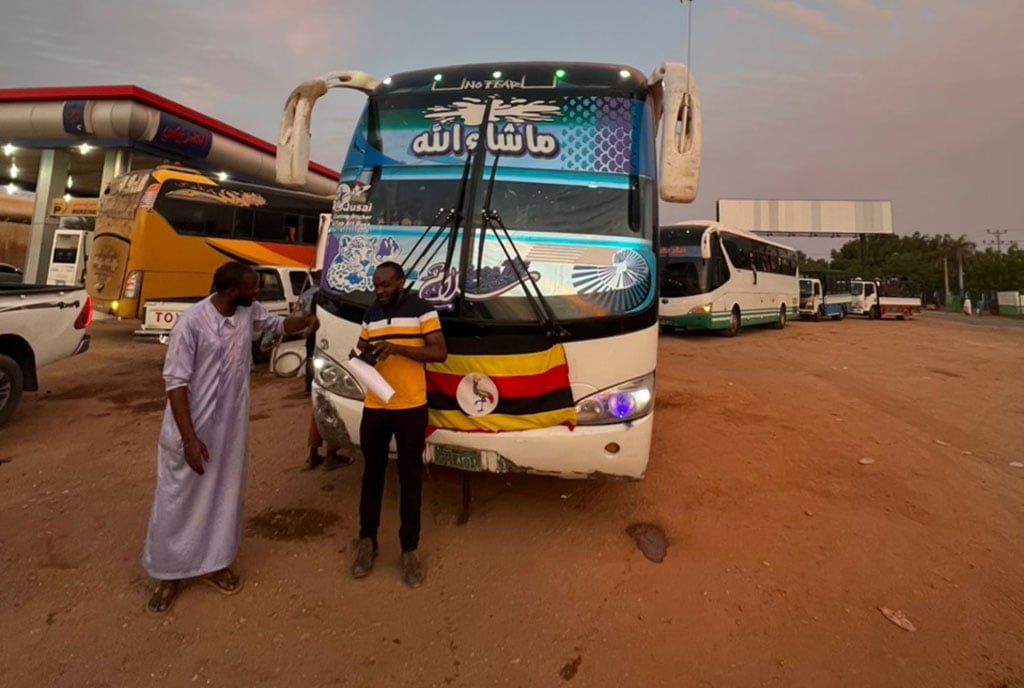
Change of airport
DailyMonitor reported Thursday that as the evacuees were about to arrive at the Garabati border, authorities realised that Gondor Airport was small and could not accommodate Uganda Airlines’s Airbus.
According to the local publication, authorities thereafter decided that the evacuees should go to Bahar Dar Airport, which is in the northern part of Ethiopia. By this time, the evacuees had arrived at the border awaiting clearance so that they could proceed to Bahar Dar Airport.
“When we realised that Gondar Airport was more of a domestic airport and it couldn’t qualify to handle big planes, we took a decision to change the route to this airport of Bahar Dar,” Ambassador Ssemudu said.
The arrangement was that the evacuees were expected to arrive home at 2 pm on Tuesday, but it was, however, not possible. “We failed to get a flight clearance to Bahar Dar Airport and they decided to fly from Addis Ababa tomorrow (today). I am confident that we shall make it,” Dr Ssemuddu told the publication on Tuesday.
It is then from here that new arrangements were made and the evacuees set off from the Garabati border to Addis Ababa where a Ugandan Airlines plane would find them.
Government would later get clearance from Addis Ababa and the Uganda Airlines plane finally picked the Ugandans.
Initially, the evacuees were expected to land in Uganda at 5 pm yesterday but were delayed due to technical glitches.
Meanwhile, government said 80 Ugandans did not travel with the contingent of evacuated nationals for medical reasons.
What You Need To Know
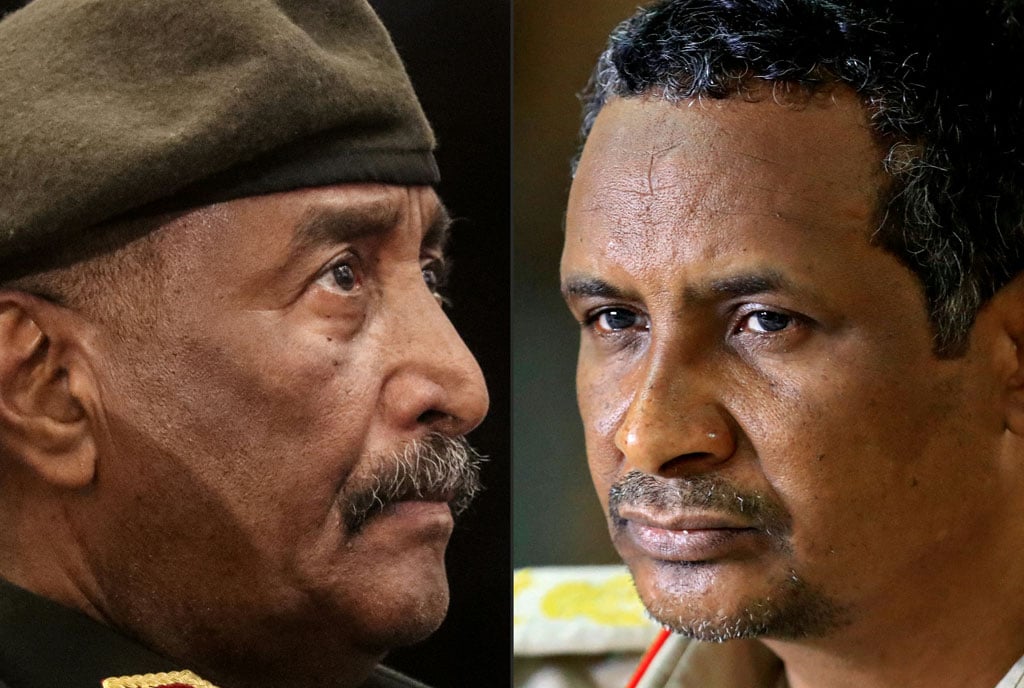
At least one thousand one hundred (1,100) people have been killed as Sudan’s armed forces battled the paramilitary Rapid Support Forces (RSF) for control of the country, according to the Sudanese Doctors’ Union.
The doctor’s union also said 595 people were wounded in the fighting that broke out two weeks ago.
Fighting continued well into the night in the capital Khartoum and other parts of the country after months of tensions erupted between two rival military leaders.
The sound of heavy weapons could be heard as the military urged Sudanese to remain inside their homes. Schools, banks and government offices would be closed on Sunday.
Both sides claim they control key airports and other installations.
United Nations Secretary-General Antonio Guterres spoke to the military leader Abdel-Fattah Burhan and RSF leader General Mohamed Hamdan Dagalo, calling for an immediate end to violence and a return to dialogue.
Burhan overthrew long-term ruler Omar al-Bashir in April 2019. Eighteen months later, the military and the RSF staged a second coup, upending a transition to democracy.
Disagreements between Burhan and Dagalo over the planned integration of the RSF into the regular army have now turned into open conflict.
The armed forces, on its Facebook page, declared Dagalo a “wanted criminal” and the RSF a “rebel militia,” saying there “will be no negotiations or talks until the dissolution” of the group.
In an interview with Qatari broadcaster Al Jazeera, Dagalo accused Burhan of starting the battle by surrounding RSF troops. “This criminal, he forced this battle upon us,” he said.
If you would like your article/opinion to be published on Uganda’s most authoritative news platform, send your submission on: [email protected]. You can also follow DailyExpress on WhatsApp and on Twitter (X) for realtime updates.


